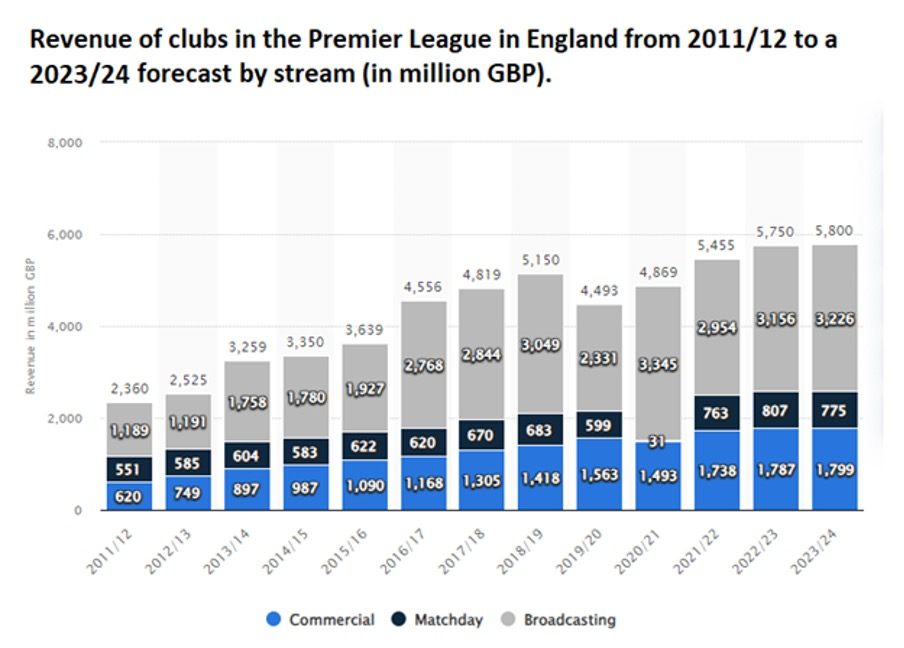
EPL's Cultural Footprint: Beyond Football and into Society
Football is undoubtedly the most popular sport on Earth. The reasons why this is so are many. But a few of the most commonly discussed ones include the low barrier to entry, tribal loyalties, thrilling gameplay, and cross-country club and national team competitions. Going by the latest stats, around 40% of people on the planet older than the age of sixteen follow the sport or consider themselves very interested in it. Hence, no other activity can post these kinds of numbers, and the English Premier League reigns supreme in the club-level competition realm, as it gets broadcast to more than six hundred and fifty million homes in over two hundred countries to an audience of around 4.7 billion people.
Thus, there is no question that the EPL currently stands head and shoulders above other European club competitions. That is also evident by the amount of traffic its matches generate at sports betting sites that offer its games as viable markets. Per the UK Gambling Commission, the value of the British sports wagering market hovers in the neighborhood of $5.4 billion, with the majority of the bets placed in the country getting made on EPL matches. Hence, the influence the league has on the UK is widespread since it fuels economic activity, tribalism, and cultural evolution. These aspects and a few others get touched upon in the subheadings below.
Fan Traditions
Given that football has seeped into British society so much, it should not surprise anyone that the EPL has managed to breed a rich tapestry of fan traditions, particularly ones that have evolved over the past half-century. Many of these have left a stamp on UK culture and include varied rituals like pre-match walks to the stadium with everyone wearing scarves or other emblems that declare their allegiance. Congregating at pubs, drinking, eating, and singing club anthems to get into the mood for a game is also commonplace for hard-core ardent fans, who use these gatherings to build an electric atmosphere for the stadium march.
Fans performing team-specific songs in a choir format at appropriate times is also something that no EPL game should be without. Another unique element of the league is that most stadium goers know the referees just as well as the players, as these are almost as pivotal personalities to fans, ones crucial to match outcomes. Knowing their names also comes into play during chants that exact pressure on these individuals or simply insult them for their bad decisions.
The Economic Impact
We already touched on this above, citing just how much money gets wagered on English Premier League events. However, the economic impact of this competition is much more robust. For example, it supports around one hundred thousand jobs during a regular season, contributing £7.6 billion to the country’s financial sphere.

Credit: Statista.com
Language Evolution
In the UK, the truth is that football is not only a sport, but it is part of this slice of the Earth’s national identity. Kicking a ball around on a field in contest form draws its roots from the 1500s, but thanks to mass media tech like TV and radio, various phrases originating from EPL games have entered the mainstream vernacular.
Several instances of this occurring over the decades are the term hat-trick borrowed from cricket, the saying squeaky bum time – invented by Sir Alex Ferguson in reference to tense match moments, and - park the bus, coined by Jose Mourinho describing super-defensive tactics to name a few.
Worldwide Reach & Globalization
DAZN claims that around half of the male UK population identifies as an EPL fan, and the popularity of this league now swells globally at a rapid pace, as 1.4 billion people in other countries have expressed a similar sentiment. Illustrative of the competition’s worldwide expansion is the fact that today, Chelsea has fan clubs in eight countries, and Arsenal has ones in seventy-nine nations.














